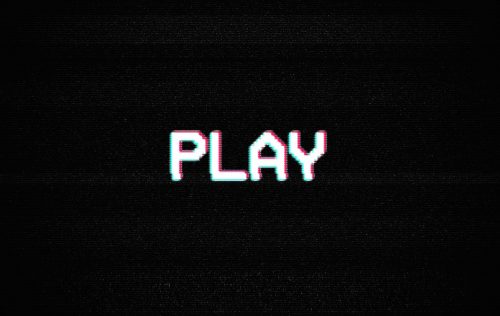
My previous reviews can be found here: Seasons 1&2 and 3, 4, and 5.
As I wrote last time, “For those not in the know, Black Mirror is an anthology show. Each episode stands alone to tell a story about how our technology or something perhaps not too far from our grasp affects people.”
After a long wait, we managed to get a 5 episode season this year. And while it has its ups and downs in terms of the actual episode stories, what was more surprising was that these mostly looked backwards as opposed to where technology might lead us, this instead tried to show us where older technology might fit into our lives (and potentially make it a better or worse experience).
***
Ep 1 – Joan is Awful
This episode is probably my second favorite of the season if only for how unique the initial premise is. A woman named Joan suddenly finds her life broadcast on the Streamberry App. It is cleverly done by cutting back and forth between our Joan and the TV version of Joan (played by Salma Hayek).
Initially Joan tries to find a way out of it, but that goes nowhere since apparently those “Check the box to say you’ve read the Terms and Conditions” are really well written to the point that they can just use your likeness for anything. She then decides to try and be as over the top as possible to maybe get the show off the air (it is disgusting what Joan does). But at every turn she finds more and more obstacles.
Seeing as how AI artwork and imagery is currently a big deal in Hollywood as well as for any artist trying to ensure their works isn’t stolen… this episode feels exceptionally timely. The best Black Mirror episodes are the ones where the leap in how technology is being used/portrayed doesn’t feel all that strange. This one has that in spades.

Image by Michael Pichlmeier from Pixabay
Ep 2 – Loch Henry
Sadly, this is my least favorite of the season, and not because it does anything particularly wrong. The basic set-up is that Davis and Pia are a pair of film students who come back to Davis’s home town and decide to investigate a serial killer who not only did his crimes there, but was indirectly/directly responsible for Davis’s father’s death. During the investigation which follows, they begin to learn more and more about what really happened all those years earlier.
It is very straightforward to the point that the reveal near the end didn’t feel like a reveal at all. Instead, it was more of a thing that really was the only way the story could have gone (considering the various hints the episode drops throughout). And maybe that’s why it’s my least favorite. It weirdly didn’t feel like it was taking any chances with the plot.
Ep 3 – Beyond the Sea
1969. A pair of astronauts, David (Josh Hartnett) and Cliff (Aaron Paul) are in Deep Space on a mission for six years. Luckily, they have technology which allows them to still be in robotic replicas back on Earth. However, when David’s replica is destroyed and his family is killed, he begins to spiral into a severe depression. So Cliff offers him the ability to use his replicant. What follows is some of the best acting you’ll see as Aaron Paul is effectively playing 2 different characters. And considering that there is only 4 main characters in the episode (with Kate Mara playing Cliff’s wife and their son being the last), this one feels like it belongs on a stage more than it does on the screen.
While I’m not sure I like the overall ending, it was definitely one which forced me to really think and feel what each of the characters were thinking and doing in each moment.
Ep 4 – Mazey Day
Set in 2006, this follows a paparazzi named Bo who is on the hunt for a picture of one of the larger acting stars who during the filming of her lastest movie did too many drugs, got behind the wheel of a car, and killed someone. And ever since, her life has spiraled completely out of control.
I appreciated the idea of the camera being the real focus point for the technology. With the mobile phones we carry around in our pockets, you can forget that it wasn’t all that long ago you had to carry an entirely seperate device to take pictures of any real use.
This episode is fine. I don’t mean to damn it with faint praise, but had it not been for the final act twist, I’m not sure what I would have thought about it (or would I have really given it any further thought). Instead the twist puts evertything into a different light and changes the story being told from one genre to another (and yes, I’m trying to be as vague as possible here).

Image by Robert Owen-Wahl from Pixabay
EP 5 – Demon 79
The last entry this season was Demon 79 and I have to say this was my favorite episode of the year. Though, I’m not entirely sure how or why the technology aspect really plays during this episode, I didn’t care.
Set in 1979, the story focuses on Nida, who deals with some manner of both racism and sexism in her day to day life. We see flashes of moments where she shows us what she’d like to do to her coworkers (driving their head through the glass display), we understand this is the fantasy she allows herself. But when she stumbles upon a relic which summons a demon to her side, her world twists into something completely foreign.
You see, the demon informs her that she must kill one person a night for the next 3 nights or the world will end.
It was in this moment, I suddenly had 3 versions of what might play out:
1 – Everything with the Demon is simply another hallucination from her fantasy mind. Something she’s built in order to regain some level of control. There is no Demon and now she is truly wrestling with her own concious.
2 – Everything is real except for the Demon’s story about needing to kill people. Instead, he is trying to prey upon Nida in order to corrupt her and gain his (bat?) wings.
3 – Everything is real, including the End of the World clause, and that means Nida is going to have to kill.
The episode does a great job of straddling those three ideas for a lot longer than you might think before finally revealing the true nature of everything. I was extremely engaged while watching this one, and it may be in my top 5 episodes of the show
***
The only bummer now is that it might be 3 years or so before we get more episodes.
***
John McGuire is the writer of the sci-fi novel: The Echo Effect.
He is also the creator/author of the steampunk comic The Gilded Age. If you would like to purchase a copy, go here!
Click here to join John’s mailing list and receive preview chapters of upcoming novels, behind the scenes looks at new comics, and free short stories.
His other prose appears in The Dark That Follows, Hollow Empire, Tales from Vigilante City, Beyond the Gate, and Machina Obscurum – A Collection of Small Shadows.
He can also be found at www.johnrmcguire.com





